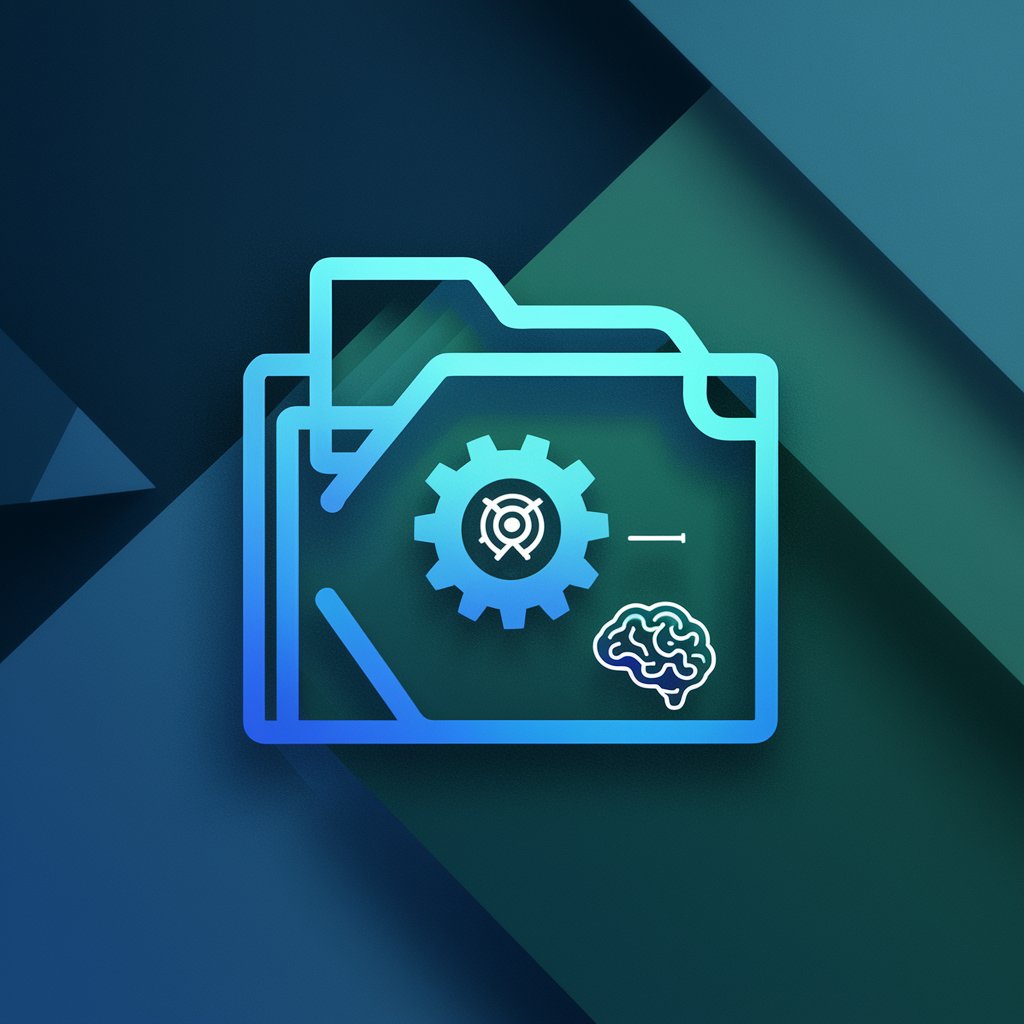File Renamer - AI-Powered File Naming

Welcome to File Renaming Assistant! Let's make file management easier.
Smart, AI-driven file renaming at your fingertips.
Guide me through the initial setup for the File Renaming Assistant, including cloning the repository and installing dependencies.
How do I create a new assistant using the File Renaming Assistant tool?
What file types are supported by the File Renaming Assistant for renaming?
Explain how the File Renaming Assistant ensures file privacy during the renaming process.
Get Embed Code
Overview of File Renamer
File Renamer is a sophisticated assistant designed to automate the process of renaming files based on their contents. It leverages Python, Bash, and Linux CLI to interact with the OpenAI API, parsing files locally to extract a small percentage of their beginning text contexts. This summary text is then sent to the OpenAI API for analysis to generate more accurate and descriptive file names. The assistant supports various file types, including .txt, .csv, .pdf, .docx, .xlsx, .jpg, .jpeg, and .png. An example scenario where File Renamer shines is in organizing a cluttered directory of mixed document types by automatically renaming them with contextually relevant names, enhancing file searchability and management. Powered by ChatGPT-4o。

Core Functions of File Renamer
Files Renaming
Example
Renaming a folder of mixed receipts and invoices scanned as JPGs to include the date and total amount.
Scenario
A small business owner can use File Renamer to rename scanned receipts and invoices, making them easier to find for accounting and tax purposes.
Assistant Creation and Update
Example
Creating a new File Renamer assistant for a unique project requirement or updating the existing one for enhanced functionality.
Scenario
A developer working on an archival project needs to create an assistant tailored to categorize and rename historical documents scanned and stored in various formats.
File Upload for Analysis
Example
Uploading a PDF document to extract key information for renaming.
Scenario
A researcher can upload academic papers, allowing File Renamer to rename them based on the paper's title and authors for a more organized literature review process.
Target User Groups for File Renamer
Digital Archivists and Librarians
Professionals in digital archiving and library services who need to manage and organize large volumes of digital documents efficiently. File Renamer helps by automatically naming files in a way that makes them easier to categorize and retrieve.
Small Business Owners
Owners who handle various forms of documentation (receipts, invoices, contracts) and require an organized digital filing system. File Renamer simplifies the process of keeping financial records and contracts systematically named for easy access and management.
Academic Researchers
Researchers dealing with extensive collections of academic papers, reports, and articles. File Renamer aids in renaming files to reflect key information like study titles, authors, or publication dates, streamlining the research and review process.

How to Use File Renamer
1
Access a no-login, free trial at yeschat.ai, offering immediate use without the necessity for ChatGPT Plus.
2
Clone the File Renamer Assistant repository from GitHub to your local machine using the provided git clone command.
3
Install the necessary dependencies via pip3 to ensure the software has all it requires to function effectively.
4
Configure your API key in the credentials.json file to authenticate your use of the OpenAI API.
5
Utilize the command line interface to run File Renamer, specifying the directory of files you wish to rename. Adjust the EXTRACTION_PERCENT variable as needed for optimal naming accuracy.
Try other advanced and practical GPTs
Imagine a Sheep
Discover your mind's eye with AI.

EDM Daily Rundown
Your AI-Powered EDM News Source

AI 画像クイズ
Engage, Learn, and Test Your Knowledge

Carousel Writer
Empower your stories, AI-driven

Manager's HR Mentor
Empowering HR decisions with AI

Echoes of Magrathea Game
Craft Your Magical Journey with AI

CRE Insight
Empowering Real Estate Decisions with AI

Add content to posts and articles
Elevate Your Content with AI

English Learning & Translation
Master English with AI-powered Learning

Developer Dan
Empowering Your Code with AI

Bricksforge
Enhance Your Bricks Builder

Mejorar mi Comunicación
Elevate Your Writing with AI-Powered Precision

File Renamer FAQs
What file types does File Renamer support?
File Renamer supports a variety of file types including .txt, .csv, .pdf, .docx, .xlsx, .jpg, .jpeg, and .png. Requests for additional file types can be submitted for future updates.
Is my data safe with File Renamer?
Yes, your data remains secure. File Renamer processes files locally, extracting a small percentage of text without directly uploading the entire file to OpenAI, minimizing privacy risks.
How does File Renamer name the files?
File Renamer analyzes the content of each file by extracting a small portion of its text. This summary is then sent to the OpenAI API, which generates a contextually relevant name based on the content.
Can I customize how File Renamer works?
Absolutely. The source code is available for customization, allowing you to adjust settings like EXTRACTION_PERCENT for name generation and add support for more file types as needed.
What do I do if I encounter an error with File Renamer?
Check the README.md for troubleshooting tips and ensure all dependencies are correctly installed. If issues persist, consider submitting an issue on the GitHub repository for further assistance.
